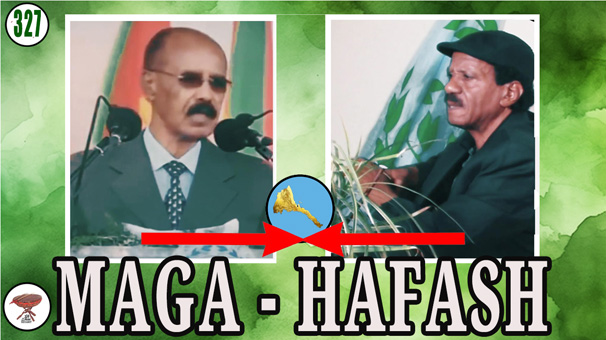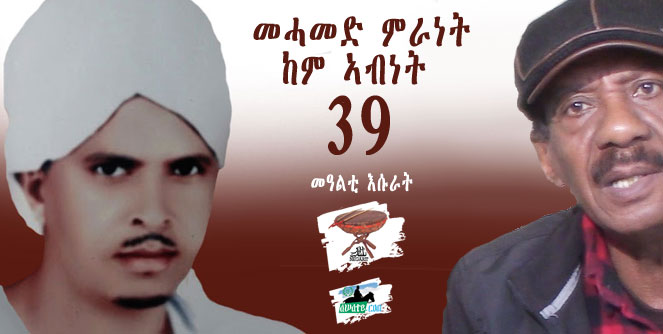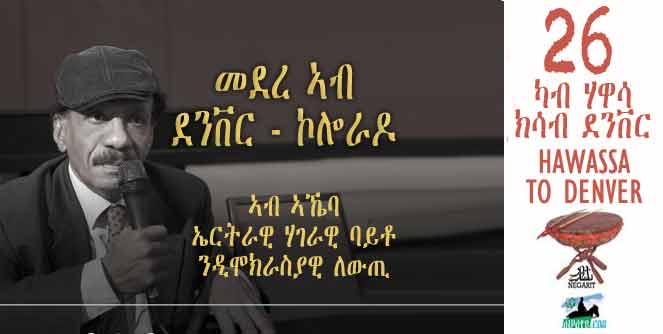Delusion and Confusion: Awet NeHafash or Awet Nwedi Afom
Isaias Afwerki vs. Reality: A Speech Drenched in Delusion. That was illustrated in his last public appearance to deliver the Independence Day speech. As usual, it was a speech drenched in delusion. Listening to Isaias Afwerki’s speeches should be classified as punishment. They are stale, tedious, and laced with bitter pronouncements that parch the tongue. Worse, they’re regurgitated versions of tired mantras—unworthy even of a junior diplomat, let alone a head of state.
On May 24, during the 34th anniversary of Eritrea’s independence, Isaias delivered yet another performance before an audience of invited dignitaries, diplomats, and a sea of ever-ecstatic supporters. They clapped on cue, like trained turkeys gobbling at the sound of a pause.
Isaias opened his address by announcing that this year’s celebration is particularly significant because it comes after President Trump’s election—as if Eritrea’s independence is tied to U.S. political cycles. If that’s the case, perhaps it’s time to celebrate July 4th instead of May 24th.
Mocking Trump’s slogan “Make America Great Again,” Isaias failed to reflect on his own decades-old chant: “Victory to the Masses.” A slogan older than most in the audience—and just as hollow. Before mocking MAGA, perhaps he should clarify what “Awet NeHafash” has actually delivered. Are the masses victorious yet?
His supporters pretend to be mesmerized by his declarations. Fethi A’dew, a Sudanese writer, once described Isaias’ last name as “mouth of gold.” These days, that mouth drips acid and confusion. Nothing more.
Isaias declared that the United States is drowning in debt, technologically outdated, and outpaced by China, not a military powerhouse anymore. His takes—amateurish at best—make Eritreans wince. He speaks with the authority of a man who understands neither the global economy nor the consequences of his tongue.
National debt, for instance, isn’t like a street vendor’s unpaid tab. The vendor will not chase you to pay your tab every time he sees you. Countries borrow and lend through complex systems. A nation’s worth isn’t determined by a pile of paper bills but by trust in its economy and financial instruments. According to Investopedia and other financial sources, the United States owes China over $700 billion—yes—but in treasury bonds, not overdue rent.
Isaias Afwerki mocked the U.S. for “just printing paper money.” If that’s all it takes, why doesn’t he print Nakfa by the billions and flood the streets with cash? Let the price of an egg shoot to 1000 Nakfa. Then what? We could have seen how he handles the crisis.
Does China need Isaias to be its defense lawyer?
Many of his supporters cheer him: “Wedi Afom exposed the U.S.!” They confuse his ranting with strategic insight. But the dollar still reigns in world markets not because of anything but because global trade trusts it. If Isaias has a better alternative, even China isn’t listening. His analysis simply seems inspired by stargazing.
And while he rants about superpowers, Eritrea crumbles. Its youth flee their country. Homes can’t be built. Civil life is paralyzed. People disappear in jails. The economy is choked and suffocated. Instead of confronting that, Isaias picks fights with giants. He is infatuated by sitting in the middle of fighting elephants who might crush him anytime.
He should loosen his grip. Let Eritreans breathe. Let business happen. Let people build. Let schools flourish. Why militarize a nation desperate for peace?
His words continue to feed a narrow, war-thirsty base. Since 1991, they’ve been drunk on his provocations. They confuse loyalty with submission and resistance with betrayal.
After independence, Eritrea’s meager wealth was redistributed through PFDJ’s inner circle. Their enterprise—the Red Sea Corporation—swallowed public resources and choked private growth. No national budget. No census. No accountability. Yet he pretends and claims he was elected by the people, as if claiming something makes it a fact. Unfortunately, there are many who believe the wild pretension.
What’s the population of Eritrea? Even international agencies rely on guessed numbers: 3.5 million? 5 million? 6 million? Only the regime knows—or pretends to.
Near the end of his speech, Isaias commented on Sudan’s rebellion, saying the people’s patience has ran out. One wonders: when will Eritreans’ patience run out?
His only valid critique—ironically—was about the UAE. He’s angry that they support Abiy Ahmed but pleased with their support of Al-Burhan of Sudan—Isaias could switch his preference in a second. And many Eritreans, however, are still angry the UAE was ever allowed in. He had granted them a base in Assab, which they used to bomb Yemeni targets—and tragically, Eritrean fishermen. The Emiratis left as quietly as they arrived. No apology. No explanation. No accountability.
Finally, the most dangerous part of his speech came when he framed Ethiopia’s crisis in biblical terms: Semites vs. Kushites, the two major populations of the region. Isaias is framing the ethnic conflict in the region as if it is between the two. In essence, he reduced a complex political and ethnic reality into a racialized legendary battle—Abyssinians vs. Oromos. That’s not strategy. That’s provocation. And it’s dangerous.
Importantly, Isais forgets: “The people and the government of Eritrea” are not the same. Eritreans don’t own the regime. They never did. He does.




Awate Forum